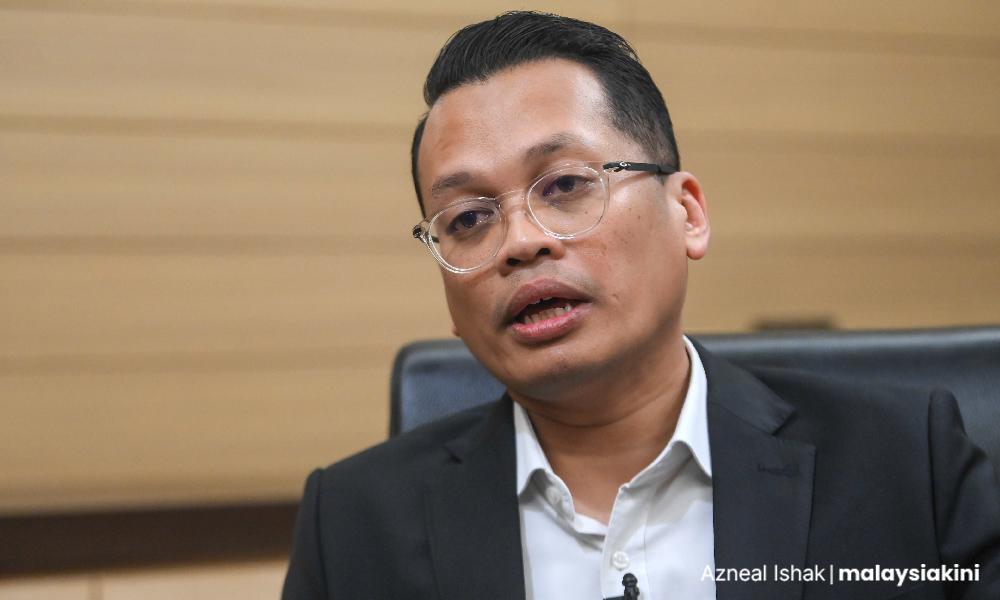
Think out of the box to solve transboundary haze, Yeo tells Nik Nazmi
Former minister Yeo Bee Yin today called on the government to “think outside of the box” when tackling transboundary haze pollution.
Speaking at a townhall session organised by the Natural Resources and Sustainability Ministry, Yeo rebutted the reasons behind the delay in implementing the proposed Transboundary Haze Act.
“You have to start thinking not about what you have done but what you can do, and that is the Transboundary Haze Act.
“I have suggestions, but they need to be considered whether they are applicable,” Yeo said at today's townhall, attended by Natural Resources and Sustainability Minister Nik Nazmi Nik Ahmad.
Yeo’s “out of the box” solution was to mandate Malaysian companies operating in Indonesia to disclose satellite data of their operations.
She cited the four Malaysian-linked firms that were singled out by Indonesia’s Environment and Forestry Minister Siti Nurbaya Bakar in 2019 as the cause of starting some forest fires in Indonesia.
Siti Nurbaya reportedly stated that the plots of land of the four companies were sealed off as fires had been spotted on their property.
“Why did she only point out the four (companies)? Because there are no proper disclosure of our own companies which may lead to fingers being pointed at us. This isn’t good for our companies as well.
“The Transboundary Act is so that we can differentiate our Malaysian companies from Indonesia companies, and hence help us with our image as a palm oil plantation country,” she said.
The four companies were Sukses Karya Sawit, which is a unit of IOI Corporation (IOI), and Sime Indo Agro, which is a unit of Sime Darby Plantation (Sime Darby). IOI Corporation is a conglomerate headquartered in Putrajaya, while Sime Darby is a Malaysian government-linked corporation.
The other two companies Siti Nurbaya named were Rafi Kamajaya Abadi - a unit of Terengganu-owned TDM Bhd - and Riau-based Adei Plantation, owned by Kuala Lumpur Kepong Bhd.
Following this, Yeo - who was the then-energy, science, technology, environment and climate change minister - said her ministry was ready to draft the Transboundary Haze Act to punish Malaysian companies that caused haze in other countries.
In November this year, Putrajaya decided against the tabling of the proposed Transboundary Haze Act aimed at criminalising conduct that causes or contributes to haze pollution in Malaysia.

Natural Resources and Sustainability Minister Nik Nazmi Nik Ahmad
In a written parliamentary reply, Nik Nazmi said feedback from the attorney-general and legal experts led the government to conclude that there would be difficulties in obtaining the details needed for successful prosecution.
Singapore had in 2014 enacted such a law but as of today, no one has been charged.
Yeo, however, attributed the lack of implementation in Singapore to the Lion City not having many plantation companies compared to Malaysia.
“Malaysia has a lot of plantation companies that also have activities in Indonesia. That makes a big difference in how we can take action,” she said.
She called for the proposed act to contain a provision disclosing land data, for specifications on how a land was cleared before it is being purchased.
“It is thinking out of the box," she said, before adding it was merely her suggestion.
“I always read news reports that our companies are buying ‘slashed and burned’ land. They say they didn’t slash and burn it, but of course, it was bought after (the land was) slashed and burned,” she said.
Today’s townhall session is the first step in the ministry’s policy direction in tackling transboundary haze.
Nik Nazmi reiterated that Putrajaya is still open to enacting legislation on transboundary haze but wanted any enacted laws to be “truly effective and meaningful”.
Following today’s townhall, the ministry plans to hold a meeting with target groups before preparing a working paper that will be presented to the Parliamentary Special Select Committee on Environment, Science and Plantation and the cabinet.
Nik Nazmi said that the ministry aimed to settle Malaysia’s policy direction on transboundary haze by the first half of 2024.
In a written parliamentary reply, Nik Nazmi said feedback from the attorney-general and legal experts led the government to conclude that there would be difficulties in obtaining the details needed for successful prosecution.
Singapore had in 2014 enacted such a law but as of today, no one has been charged.
Yeo, however, attributed the lack of implementation in Singapore to the Lion City not having many plantation companies compared to Malaysia.
“Malaysia has a lot of plantation companies that also have activities in Indonesia. That makes a big difference in how we can take action,” she said.
She called for the proposed act to contain a provision disclosing land data, for specifications on how a land was cleared before it is being purchased.
“It is thinking out of the box," she said, before adding it was merely her suggestion.
“I always read news reports that our companies are buying ‘slashed and burned’ land. They say they didn’t slash and burn it, but of course, it was bought after (the land was) slashed and burned,” she said.
Today’s townhall session is the first step in the ministry’s policy direction in tackling transboundary haze.
Nik Nazmi reiterated that Putrajaya is still open to enacting legislation on transboundary haze but wanted any enacted laws to be “truly effective and meaningful”.
Following today’s townhall, the ministry plans to hold a meeting with target groups before preparing a working paper that will be presented to the Parliamentary Special Select Committee on Environment, Science and Plantation and the cabinet.
Nik Nazmi said that the ministry aimed to settle Malaysia’s policy direction on transboundary haze by the first half of 2024.
No comments:
Post a Comment